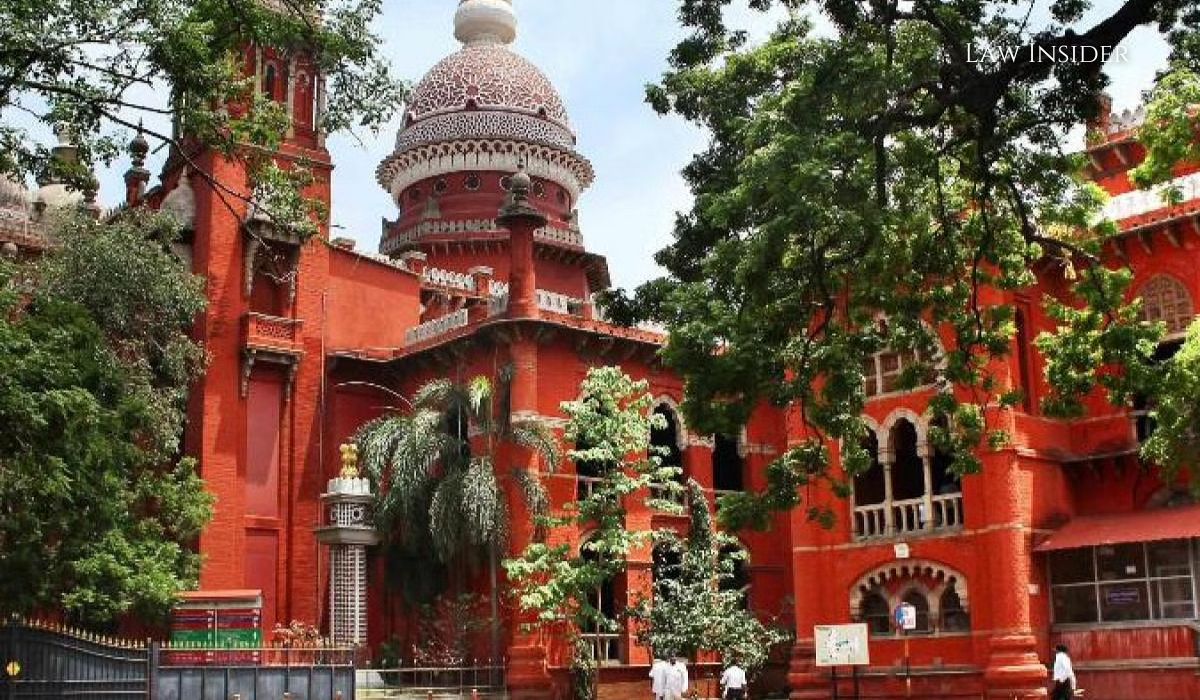Aastha Thakur
Published on: 26 September 2022 at 23:01 IST
The Madras High Court recently dismissed a university professor’s petition challenging a trial court’s denial to order an investigation into his complaint, stating that the Scheduled Castes and Scheduled Tribes Act’s Section 3(1)(u) only applies when an individual attempts to incite animosity toward the SC or ST community as a whole.
Communications that incite hate, hostility, or other negative emotions against members of the Scheduled Castes and Scheduled Tribes are prohibited under Section 3 (1) (u).
Justice D Bharatha Chakravarthy in the order said that, “A careful reading of Sections 3 (1) (r) and 3 (1) (s) shows that the legislature has carefully used the words that when ‘a member’ of a Scheduled Caste or a Scheduled Tribe is humiliated with an intent, then the offences under Sections 3 (1) (r) and 3(1) (s) come into play.”
“As far as Section 3 (1) (u) the word used is the ‘members of Scheduled caste’ and on a clear reading of entire Section 3 (1) (u), it would be clear that when against the members of the Scheduled Caste or Schedule Tribe, as a group if any person is trying to promote ill feeling or enmity, then only the said offence will come to play. Therefore, I am of the view that Section 3 (1) (u) is not made out.”
In his complaint to the Special Court under Section 156(3) of the Criminal Procedure Code, Dr. R. Radhakrishnan claimed that the department head had accused him of misbehaving with female students and other misdeeds in a letter to the university.
He said that Dr. Rita John levelled the accusations against him just because he is a member of the Schedule Caste and was seeking a FIR under the SC/ST Act.
However, the University took no action in response to Dr. John’s message that would have demonstrated that the accusations were untrue, and it was claimed before the high court that “once the complaint is said to be a false complaint, offences under Sections 3(1)(u) and 3(1)(zb) are made out.“
A person who accuses a member of the SC/ST of practising witchcraft or being a witch may be punished under Section 3(1) (zb).
The single bench, however, ruled that there had been no public outcry or public insults of the petitioner. “The complaint is given to the appropriate authority about the alleged acts of the misdeed,” it added.
On the allegation that Dr John in her complaint had claimed that Radhakrishnan has supernatural powers and that he “warned” her that her husband will die in six months if she opposes him, the court said she allegedly only submitted the complaint to the university and same would not amount to an act of physical harm or mental agony on the petitioner “by allegations of practicing witchcraft”
The bench stated that, “I am of the view that the allegations mentioned in the complaint does not prima facie constitute criminal offences under Section 3 (1) (u) or 3 (1) (zb) of the Act and accordingly, I am unable to persuade myself to refer the complaint for investigation by the respondent police,”
Proceedings Adopted by Trial Court
The petitioner had also contested the trial court’s method of operation. He said that the trial judge dismissed the petition without even numbering it, despite recording his sworn declaration.
The trial court had incorrectly noted that the petitioner had not filed an affidavit when denying the petition, the court was informed. The petitioner had later provided an affidavit.
The petitioner’s argument was accepted by the court. He pointed out that the petition should have been given a number by the court because the petitioner had submitted an affidavit at the time of the hearing.
Further the bench stated that, “If the Trial Court had found that there are prima facie cognizable offences, the Trial Court ought to have referred the complaint under Section 156 (3) Cr.P.C. with an appropriate direction to register the FIR straightaway or to conduct primary enquiry.”
“If the Trial Court had decided to take the case as a private complaint and conduct the enquiry under Sections 200 and 203 Cr.P.C., even then, the criminal miscellaneous petition ought to have been numbered and the procedures have to be taken into a logical conclusion,”

